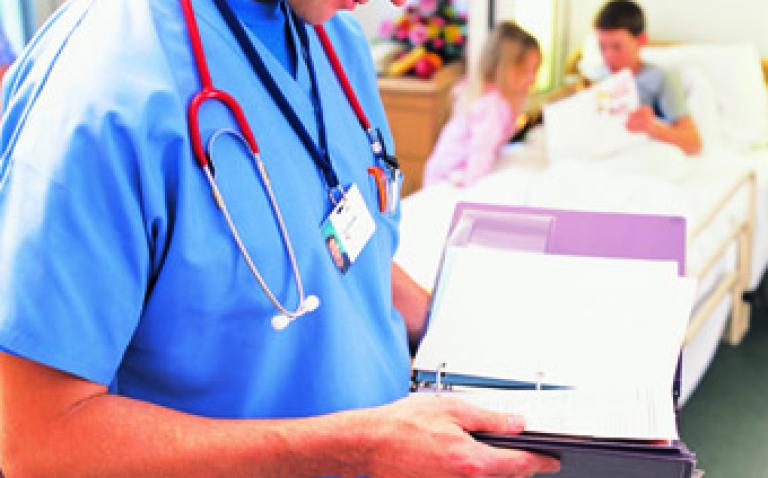Healthcare workers should be more aggressively screened in combination with eradication treatments and other infection control measures to help bring down rates of MRSA infection in hospitals and other healthcare facilities with endemic MRSA.
These are the conclusions of a review in the May issue of The Lancet Infectious Diseases.
In the review, entitled “Healthcare workers: source, vector, or victim of MRSA”, Stephan Harbarth, Infection Control Programme, University Hospitals of Geneva, Switzerland, and Werner Albrich, University of the Witwatersand, Johannesburg, South Africa, re-analysed data from 169 studies comprising 33,318 screened healthcare personnel from 37 mostly high-income countries, to determine their role in MRSA transmission.
They found that 4.6% of these workers carried MRSA, and of these, 5·1% had clinical MRSA infections.
The authors say: “Poor infection control practices were implicated in both acquisition and transmission of MRSA by personnel, but even good adherence to infection control – including masks and hand hygiene – did not entirely prevent transmission of MRSA from heavily colonised staff to patients.”
The authors discuss how healthcare workers with nasal or throat MRSA carriage can become “cloud healthcare workers” – referring to a release of substantial clouds of MRSA into the air by personnel during their own upper respiratory tract infections. Burn patients or patients with large open wounds can be at particularly high risk for airborne MRSA infection.
They also discuss how community-associated MRSA (CA-MRSA) and healthcare-acquired MRSA (HA-MRSA) have spread to close contacts of healthcare workers. Not only does this entail risk for family members, but can also lead to further spread of MRSA.
Whereas a recent review of MRSA outbreaks suggested HCW screening should be focused on those workers with symptomatic infection, the authors say: “Screening of infected healthcare workers only will likely miss a large number of asymptomatic personnel capable of transmitting MRSA to patients since staphylococcal carriage is mainly dependent on whether the person is a nasal carrier. Our search revealed 18 studies with proven and 26 studies with likely transmission to patients from healthcare workers who were not clinically infected with MRSA.”
The authors propose HCW screening should take place irrespective of the presence of risk factors or puss-producing (purulent) infections as part of pre-employment examination, or (especially in the case of large outbreaks) even periodically and unannounced before a work shift to avoid detecting only transient carriers.
Further, in order to increase detection of MRSA, both nose and throat swabs should be taken with separate swabs since eradication therapy differs depending on the location of the MRSA.
Whilst acknowledging that implementing screening is not feasible in many healthcare settings because of its cost, the authors point out that in regions of low MRSA prevalence such as Scandinavia and the Netherlands, close healthcare worker surveillance is practised routinely.










